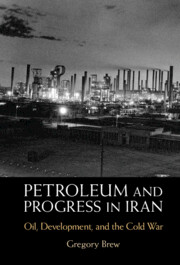6 - The Golden Goose
Iran, the Consortium, and the First OPEC Crisis, 1954–1965
from Part II
Published online by Cambridge University Press: 15 December 2022
Summary
In the late 1950s, the oil oligopoly reached the apex of their dominance over the global oil economy. Yet rising petro-nationalism in the oil-producing Global South threatened to destabilize the concessionary system erected to balance prices and distribute profits. Following cuts to the price of oil in 1960, the producing states formed the Organization of Petroleum Exporting Countries (OPEC) to pressure the companies into offering better terms. Iran occupied a middle position, as the shah hoped to use OPEC to further his own interests while maintaining close ties to the companies. His government was pulled in two directions, with OPEC Secretary General Fu’ad Ruhani pushing for more assertive petro-nationalism while conservatives in the shah’s cabinet urged a closer relationship with the companies. In the end, the shah opted to sabotage OPEC and conclude his own arrangement with the companies, one that would ensure Iran’s rising revenues and a firm financial foundation upon which to build a more powerful central state.
- Type
- Chapter
- Information
- Petroleum and Progress in IranOil, Development, and the Cold War, pp. 182 - 213Publisher: Cambridge University PressPrint publication year: 2022



